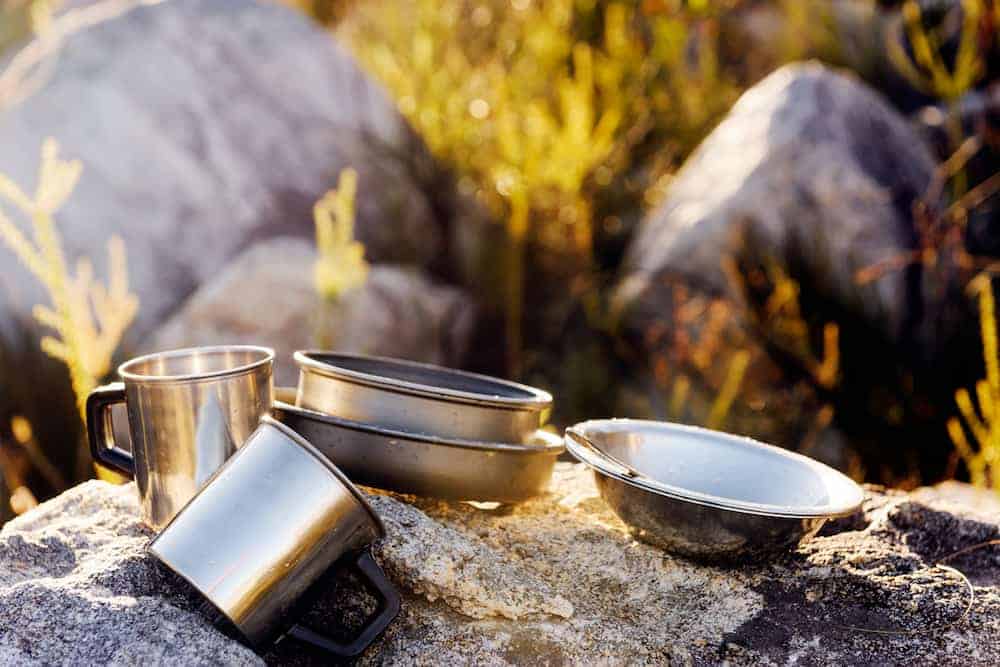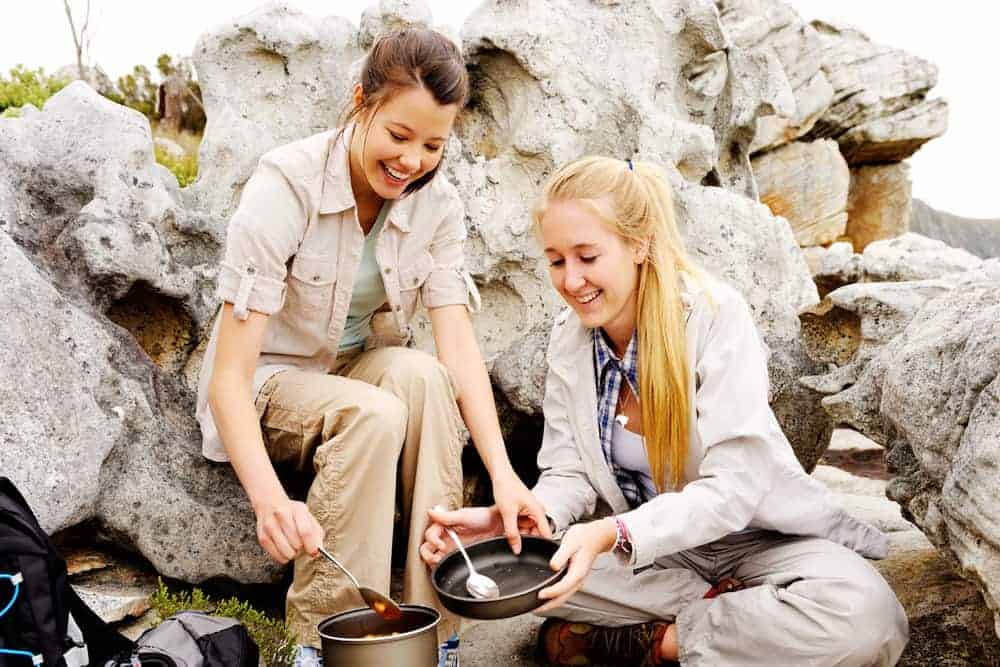Camping is an Aussie favourite to stay in touch with nature. And a trip is not complete without good food and drinks in tow. Honestly, these are what I look forward to in every outdoor adventure (aside from the beautiful scenery, of course!). But planning and packing food for camping can be tricky. If you’re not careful, you might end up dealing with food spoilage rather than delicious meals. These tips should help you pack like a pro.
Have a Camping Meal Plan
Meal planning not only helps you choose which food items to bring. It also lets you know how much to pack, depending on the number of people coming and the camping trip duration. Make it your goal to plan and pack enough food with little to no leftovers when you return home.
As for camping food ideas, your choices should match your adventure plans. For example, you may want to stick to non-perishable food for single-day hikes or backpacking trips. This way, you won’t have to bring a camp fridge or freezer. Your camping food list should then include trail mix, energy bars, whole fresh fruit, nut butter and meat jerky.
Multi-day trips will need more planning and storage for more food. And in this case, you may need to bring a camping fridge for packing perishable ingredients, cooked meals and sandwiches. Then complement these with cereals, purees in pouches, canned meats and fish, condiments in individual packets, soup mixes and dried pasta or rice. On every camping trip, make sure to pack plenty of water as well.
Set Up a Snack Kit in the Car
You’re still not ready to go without the best food of all: camping snacks! Long car rides to the campsite are more bearable with ready-to-eat nibbles, after all. And if you’re going with the kids, these should keep them happy and preoccupied.
The best way to bring your packaged snack foods is to make them easily accessible in your vehicle, not in the boot. This way, your camp fridge stays untouched to avoid temperature fluctuation. Plus, anyone can reach for a healthy snack without digging through your neatly stacked camp food stash.
Ideally, attach a shoe or accessory organiser at the back of the driver’s seat. Then fill each compartment with packets of crisps, cookies and dried or freeze-dried fruit. You can also use it for storing keys, coin purse, ear pods or a map.

Pack Essential Cookware Only
Picking out what cooking equipment to bring should go hand in hand with camping meal planning. Camp cooking is fun, but you should refrain from taking your entire home kitchen with you. So, choose and pack wisely. Here are a few essentials you should bring:
- Eating and cooking utensils. These include cutlery, enamel dinnerware, tongs, wooden spoon and spatula. Pack them in a plastic tub with a lid.
- Camping stove. If you’re thinking of buying one, check out this review of camping stoves in Australia. Make sure to bring enough fuel plus matches or a lighter.
- Cookware. Choose multipurpose ones, like a sauté pan or a Dutch oven, that suit your camp stove.
- Prep and cleaning tools. Wrap a chef’s and paring knife in tea towels. Other essentials are a peeler, cutting board, bowls, paper towels, dishcloth and detergent.
Bring a Cooked Camp Meal
Nope, packing a cooked meal doesn’t mean you’re cheating on the camp cooking gods. But it will surely make your first day at camp more pleasant. Think about it. Preparing and going to the campsite require so much time and energy. The last thing you want is to impress everyone with your excellent cooking right away.
Save it for the next meal and have something ready for reheating instead. When you pack your cooked meal, place it on top of your cooler for easy access. If you had it frozen at home, it’s also the perfect spot for it to thaw out. You can apply this tip for breakfast ideas, too. Whip up a big batch of overnight oats or chia, for example, that you can easily scoop and serve.
Maximise Your Cooler or Fridge Space
If the golden rule of travelling is to pack light, the same thing applies to camping. Treat your camp fridge like your suitcase and pack your food in an organised manner. One way to do this is to arrange your food for camping in layers. Make sure to put the items you’ll use first on top.
Instead of buying ice to keep foods cold in your fridge, put them in resealable bags, then freeze them in flattened packs. This way, it will be easy for you to grab, stack and pack them later. You can do this tip for water bottles, too.
Alternatively, use a food vacuum sealer if you have one. It will take out the extra air, preserve freshness and save space in one go. You might want to read these additional packing tips for the camp fridge to help you out.

Do Away with Extra Packaging
Here’s another way to pack food smartly without the extra weight or space. Foods in jars, cans and cartons can be heavy and bulky. So, pack enough food that you’ll need in more compact and reusable containers. For example:
- Pack dry herbs, seasonings or spices in paper straws. Use an elastic band, tape or paper clip to seal the edges. You can repurpose mint candy canisters or pill dispensers for these camping staples, too.
- Transfer dry premixes in a resealable bag. Forget about measuring your pancake or damper ingredients at camp. Dump them in one Ziploc, then write the cooking instructions on the bag if you need them. You can also do the same for food in large cans.
- Do a little food prep in advance. It will lessen the kitchen utensils you need to pack. Marinating meats ahead of time also prevents you from taking individual ingredients that take up space.
- Store beaten eggs in plastic bottles. Crack eggs in a bowl, beat, transfer them in a bottle and voila! All you need is to add the filling to make a delicious omelette or frittata at camp. There’ll be no broken eggshells or bulky egg carton either.
Knowing how to plan and pack your food for camping is one thing. But choosing the best storage is another. This buying guide and review of camping fridge freezers in Australia should help you find the perfect adventure partner.
- How to Clean and Care for Your Sleeping Bag - January 6, 2022
- 6 Best Things to Do in Perth for Free - December 3, 2021
- Swag vs Tent: Which One is Better? - November 5, 2021

